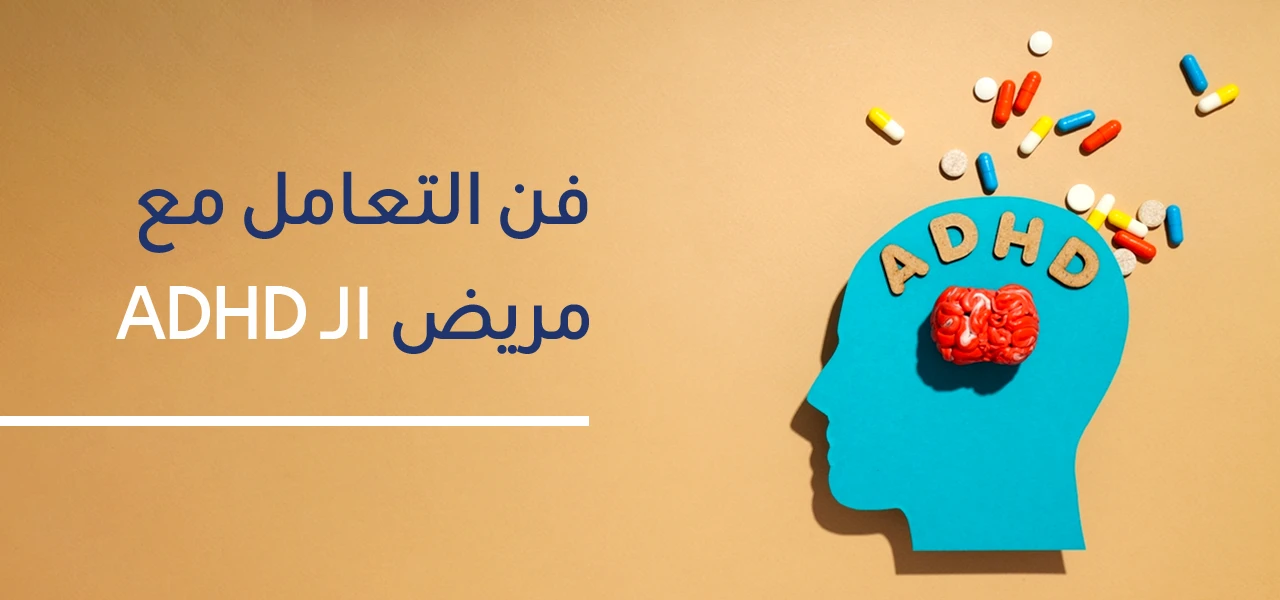how to deal with someone with ADHD ?

ADHD affects children's focus and activity, and may last into adulthood. Learn how to manage it in this Spirit Pharmacy article.
How do I deal with an ADHD patient?
Dealing with a patient with attention deficit hyperactivity disorder (ADHD) requires patience, understanding, and adopting effective strategies to deal with the symptoms that the patient suffers from. Below are some tips that may help you in dealing with a patient with ADHD:
-
Clear communication
Communication must be clear and direct with the patient, using clear and specific directions and instructions, so try to be frank and direct in communicating with him.
-
Structuring and organizing
Pay attention to creating a regular and organized schedule for the patient, where there is a specific time for tasks and activities. Use a timer or timer to remind him to switch between tasks, as this helps him adjust his attention and focus.
-
Provide step-by-step instructions
Providing instructions in a simple, step-by-step manner is one of the most important steps in dealing with someone with ADHD, so it is useful to use written lists or illustrative pictures to help understand the instructions.
-
Motivation and rewards
Encourage and reward the patient when he performs tasks correctly or makes progress in achieving goals, so it is preferable to use a simple system of rewards and motivation, such as a points or token system.
-
Regulated environment
Organize the surroundings around the patient, reduce distractions, and try to provide a calm and tidy environment.
-
Attention to public health
Make sure the patient eats healthy, balanced meals and gets enough sleep and physical activity. General healthy habits can help improve his concentration and stability.
-
Find support
Do not hesitate to seek support from health professionals who specialize in concentration and activity disorders. There may be educational programs or other tools that can help you deal with the patient.
Is ADHD a mental illness?
Yes, attention deficit hyperactivity disorder (ADHD) is considered a psychological disorder, because ADHD affects the mental and behavioral functions of the individual, and affects attention, concentration, self-control, and motor activity. Although the causes of ADHD have not been precisely determined, research indicates there are genetic and environmental factors that may play a role in the development of the disorder.
It also affects the chemical balance of chemicals in the brain, such as dopamine and norepinephrine, so treatment for the patient includes a psychological part aimed at improving focus, attention, self-control, and social adaptation for individuals with ADHD
Is ADHD serious?
Attention Deficit Hyperactivity Disorder (ADHD) is not a serious disease, but it can have a significant impact on the life of the affected person and the quality of their daily life, such as:
- Difficulty concentrating and paying attention.
- Hyperactivity.
- Difficulty in self-organization and time regulation.
- Impact on a person's ability at school or work.
- Impact on social interaction.
- Impact on communication and personal relationships.
- It has a significant impact on the academic, occupational, and emotional functioning of the individual with ADHD.
- Difficulties in education and professional implementation.
- Inability to deal with stress and life pressures.
Is there a cure for ADHD?
Yes, there are multiple treatments available for attention deficit hyperactivity disorder (ADHD), and treatment usually includes a combination of treatments such as:
- Pharmacological treatment: Stimulant medications such as methylphenidate (such as Ritalin) and amphetamines (such as Adderall) are used to improve concentration, attention, and impulse control. The medication must also be prescribed and monitored by a specialized physician.
- Behavioral and educational therapy: involves applying behavioral and educational methods to help individuals develop regulation and self-regulation skills and deal with symptoms associated with ADHD.
- Educational Support: Includes providing an appropriate and supportive learning environment for children with ADHD, and may include modifications to classrooms, schedules, and individual learning strategies.
- Psychological and emotional support: Psychological and emotional support can be helpful for individuals with ADHD and their families, and can include psychological counseling, stress management training, and general mental health promotion.
Here I have presented to you all the information related to ADHD that you will need if you want to deal with ADHD patients or even learn about this disease closely.
